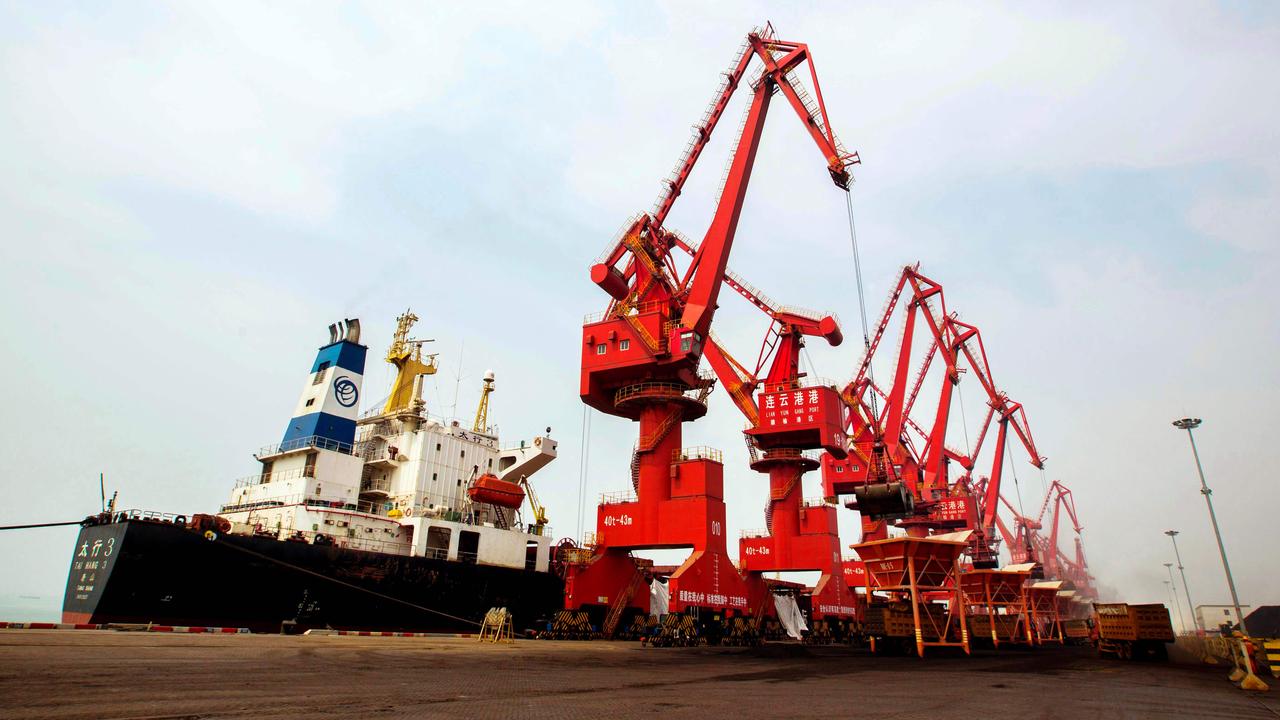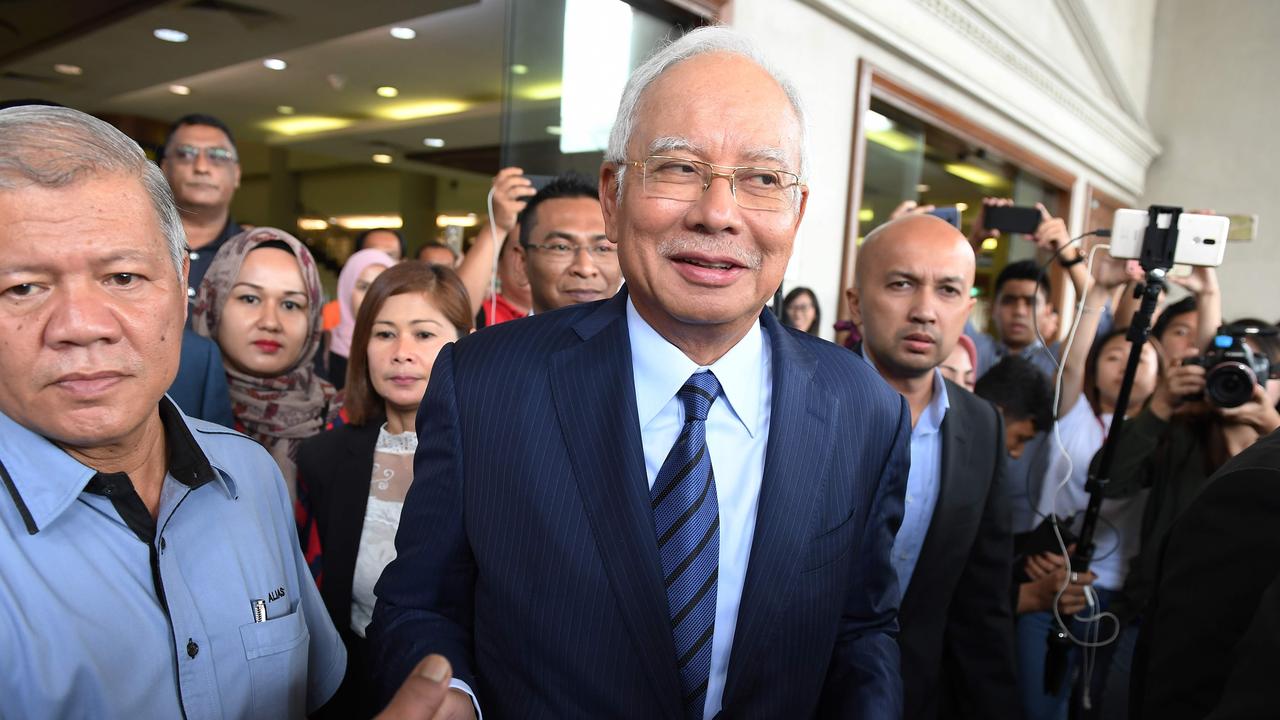Japan is evidence that not all news emanating from north Asia is bad
Here’s something novel at a time of deep anxiety in our region: an equity market being described as ‘a screaming buy’.
Here’s something novel at a time of deep anxiety in our region: an equity market being described by an astute and experienced analyst as “a screaming buy”.
Guessed where?
The answer, as usual, has a political dimension.
The pattern of leadership is in the process of being settled in north Asia, the countries of the world that have by far the biggest appetite for Australian exports, for the next five years or more.
This is important. It means that — leaving aside the scary clown Kim Jong-un, who may continue in power for decades — Australia can plan its initiatives and build its relationships around known quantities in this crucial region, expecting to be dealing with the same figures for some time to come.
In a week China, our biggest market, is staging the 19th five-yearly national Communist Party Congress that will serve as a coronation for President Xi Jinping, cementing his command probably for 10 years or more ahead.
South Korea, our third biggest market, recently elected the centre-left leader Moon Jae-in as president. He has his hands full with his northern neighbour right now but the economy is in surprisingly good shape.
Hong Kong, our seventh biggest market, is to be led for several years by new chief executive Carrie Lam, a steely bureaucrat who has the full confidence — for now, anyway — of the Big Boss, Xi.
Taiwan, our ninth biggest market, is led by President Tsai Ing-wen, who, given the disarray of her principal opponents, is likely to remain in power for many years. She is considerably more centrist and pragmatic than Beijing seems to recognise, saying in her National Day address on Tuesday that in relating to China: “Our goodwill will not change, our commitment will not change, we will not revert to the old path of confrontation, and we will not bow to pressure.”
She emphasised Taiwan’s closer ties with Southeast Asian countries, and resulting improvements in trade, talent exchanges and industrial co-operation — thanks in part, she claimed, to her credit guarantees for small and medium businesses that boost their businesses there.
Missing so far from the above list, of course, is our second biggest market, Japan, which is also the source of massive amounts of patient capital invested in a remarkably broad range of sectors in Australia, now totalling more than $213 billion.
And it’s Japan that Charles Gave, of Gavekal Research, believes is a great buy, because it is finally exiting from a 25-year “debt deflation” spiral. That’s because corporate profits are at a record high level relative to GDP, because companies have stockpiled $5.1 trillion in cash, reinvesting only 70 per cent of their profits, so they can increase their expenditure without borrowing; because the yen is “the most undervalued since 1985”; and because inflation is “nowhere to be seen”.
Much will depend on whether Prime Minister Shinzo Abe, who has already outlasted his five predecessors put together, wins the election he suddenly called for October 22.
Business analyst IMA Asia says that while “the global trade recovery has been stronger and longer than we expected, Japan jumped on to it one or two quarters ahead of the rest of Asia thanks to a cheap yen and the right product mix for rising demand in China”. Japanese exports to China have risen 14 per cent in the year to August.
Real growth in consumer demand has also jumped, by 1.7 per cent in the first half, after averaging 0.5 per cent the previous decade. And the Bank of Japan is set to continue its quantitative easing into 2019, while other parts of the world edge up their rates, ensuring the yen remains low.
Abe’s personal approval ratings have also almost doubled from a grim 26 per cent in July — thanks greatly to the perception that he is the leader needed at a time of threat from North Korea, which has shot two missiles over Japan in recent weeks. He has long taken a tough stance against Pyongyang, including a deep personal commitment on the abductions of Japanese people — including children — by North Korean agents.
The opposition has united around former LDP politician Yuriko Koike, who won the governorship of Tokyo as an independent. If Abe can retain a two-thirds majority, he will amend the constitution to permit the military to take action offshore — and will preside over the 2020 Tokyo Olympic Games, a great chance to celebrate the revival of Japan.
Koike is promising to postpone the next planned GST rise, from 8 per cent to 10 per cent — due in a year’s time but already postponed twice. Abe is promising that half the funds raised will go to education. Previously the money has been assigned to debt repayment.
The threat posed by Koike — diminished by her refusal to stand for the national parliament personally and by oddities like her claim to cure hay fever — has prompted, in response, an easing of the government’s fiscal stance, reinforcing the economic recovery.
Gave points out that the Japanese private sector is now growing structurally for the first time since 1991, “moving decisively into positive territory”, with corporate profits thus at their highest as a share of private sector GDP — non-financial stocks doing better, generally, than the finance sector.
It is a broadbased recovery. The yen rate is crucial in this. Gave believes it could rise by 15 per cent and still be cheap, betting on the yen as the best performing currency for the next five years. Thus an exchange rate rise could stimulate domestic demand by bringing down inflation, while still not cutting profits.
A deal of credit for this goes of course to the Abe government, including its determination not to let Donald Trump’s withdrawal from the Trans-Pacific Partnership destroy the gains Tokyo had started to make as it began to commit to real trade concessions, starting with the Australian FTA.
It has secured an in-principle deal with Europe and is pushing on with the TPP “righteous remnant” including Australia. Agricultural reforms previously pledged are mostly going ahead.
This is excellent news for Australia, as long as we seize our opportunities from Japan’s recovery and more generally from a settled pattern of leadership in north Asia, likely to be underlined by another Abe victory.




To join the conversation, please log in. Don't have an account? Register
Join the conversation, you are commenting as Logout